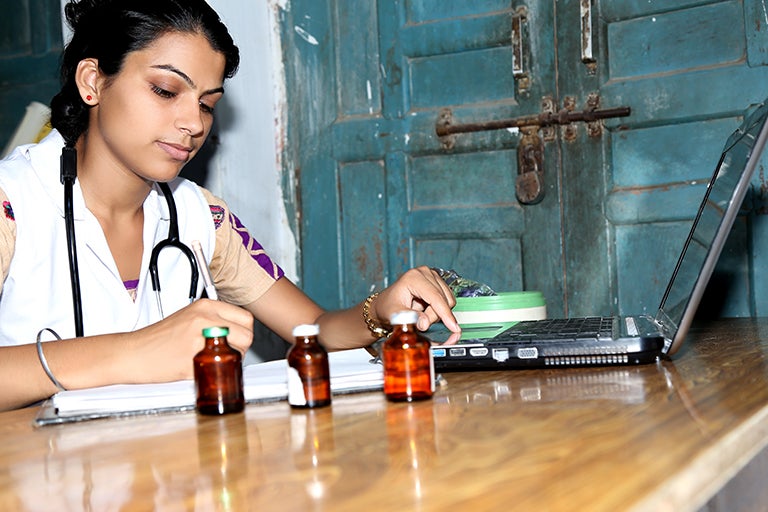
With 2.5 million new research articles published annually, clinicians cannot possibly stay abreast of every new discovery. Moreover, those in resource-limited settings can be geographically and professionally isolated and lack access to the latest educational tools. These clinicians also care for some of the largest, sickest patient populations in the world. They must know and do more in order to care for their patients despite having limited access to information or support.
The Better Evidence Project gives these clinicians access to critical, informational tools they need for better care. The ongoing project, first launched in 2009 and funded by an Ariadne Labs Spark Grant in 2016, will now join the Ariadne Labs portfolio of projects in a partnership that will increase its collective understanding of implementation in resource-limited settings and increase the impact of its solutions.
In 2009, the Better Evidence team (then under the auspices of Harvard University’s Global Health Delivery Project) partnered with the provider of the leading, digital evidence-based clinical resource (EBCR) to begin awarding free, annual subscriptions to providers in resource-limited settings. These digital resources have become ubiquitous in clinics, hospitals, and medical schools across the U.S., helping clinicians improve patient outcomes by placing an immense amount of clinical information at their fingertips. For example, smartphone apps, such as UpToDate (UTD), have reliable data on the latest research across all fields of medicine and allows users to search conditions, symptoms, and treatments on or offline. Information is updated as new research or guidance is released, so clinicians know where to go and have better information to make decisions.
“This is a critical tool for front line providers – what we often refer to as ‘the modern-day stethoscope’,” says Dr. Rebecca Weintraub, the primary investigator. “Considering the ever changing evidence base, providers need access to a trusted resource. We have the opportunity to test and spread this tool with clinicians facing scarcity and high burden of disease. The potential impact to improve the quality and efficiency of health care is profound.”
Since its inception, the project has provided digital access to more than 20,000 qualified health professionals in more than 120 countries, approximately half of whom had no prior access to such online resources. ”Almost every day, I adjust a diagnosis, dose, or follow up of a patient based on what UTD offers me,” says a clinician in Mexico. “I’m a better doctor because I had access to UTD resources.”
In 2015, the Better Evidence team also began looking at the impact of providing medical school students and faculty at two locations in sub-Saharan Africa with five years of access to EBCRs. High usage rates among clinical students and recent graduates inspired the team to add additional schools and assess the impact of early exposure to EBCR on long-term clinical practice and habit formation.
An Ariadne Labs Spark Grant in 2016 supported the Better Evidence Project in a two-year investigation of barriers and facilitators of EBCR use in resource-limited settings. Now, the project will continue to gain insight into the impact of EBCRs on clinicians’ decision making, care delivery, and patients’ outcomes to further spread EBCRs and other evidence-based interventions in these settings.
Ariadne’s aim with the Better Evidence Project is to continue extending the reach of medical resources beyond the use of an app. “Better Evidence is about so much more than bringing one clinical application to users,” says Dr. Evan Benjamin, chief medical officer for Ariadne Labs. “It’s to create new ways to bring information, data, and tools to all providers around the world and to be able to use providers’ data for a better understanding of healthcare issues globally.”


